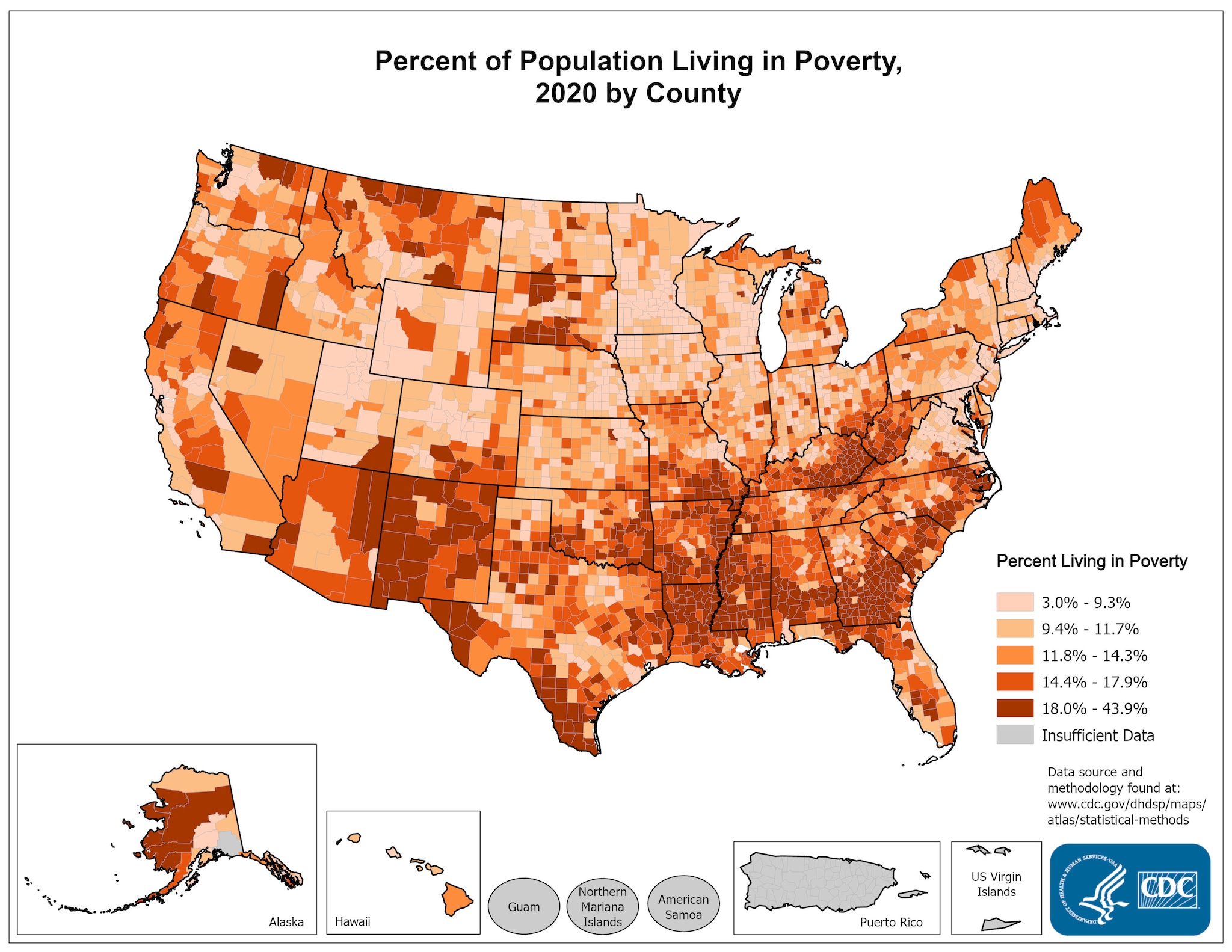Socioenvironmental Maps—Poverty

Geographic Patterns: Counties with the highest percentage of the population living in poverty in 2020 were located primarily in Mississippi, Georgia, Louisiana, West Virginia, North Carolina, Kentucky, Alaska, New Mexico and Alabama. Pockets of high-rate counties are also found in Texas, South Carolina, Montana, South Dakota, Oklahoma, Arkansas, Florida, and Missouri. The range in the percentage living in poverty was between 3.0% and 43.9%.